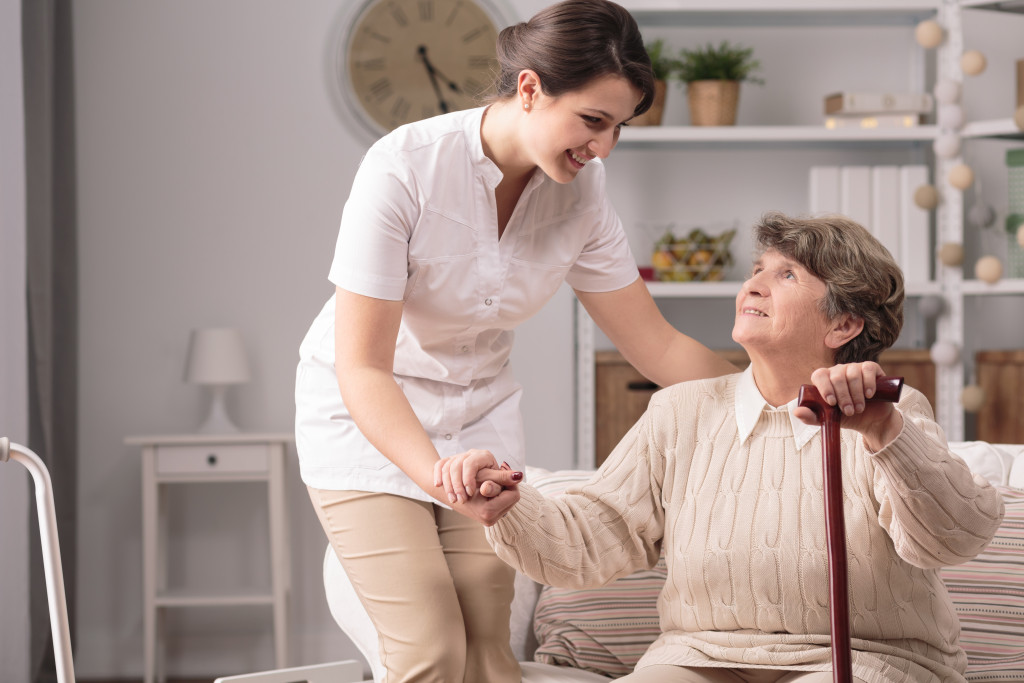If you’re a primary or family caregiver, you’re not alone. According to estimates, 65.7 million Americans served as primary caregivers for a disabled or ill relative. Another study shows about 40.4 million caregivers in America, and nine out of ten are caring for ageing parents or relatives. The COVID-19 crisis has wreaked havoc upon the world and upon our health care systems and mental health, first and second of all. A deadly combination for primary caregivers since COVID-19 is particularly dangerous for those with existing medical conditions and the elderly.
Now more than ever, primary or family caregivers need to care for themselves well if they want to care for their loved ones for a long time. Caring for an ill, disabled, or elderly loved one is a noble task and one that requires so much of one person—and those who decide to do it deserve all the self-care in the world. Here are some tips for caring for yourself well while caring for others.
Take time for yourself.
What do you enjoy doing? When you spend most of your time caring for someone, your own needs and wants often get lost in your calling as a primary caregiver. Discover where your passions and interests lie and spend a few hours each week indulging in those activities. Make a deal with another family member to relieve you of your duty, even if it’s just for one day a week. Making time for yourself is not selfish; in fact, taking care of yourself is the best way to care for your loved one.
Don’t forget to exercise and stretch.
You may be tempted to think that hauling heavy equipment or helping your loved one out physically is enough exercise, but it’s not. Make time to stretch or jog during your week. You can even play an aerobic class while your loved one is sleeping.
Eat nutritiously.
It’s easy to fall into the trap of eating whatever is convenient and readily available when you’re busy and stressed, but eating nutritiously is one of the best ways to maintain your energy and good health. Eliminating processed foods will immediately help you see a difference in your energy levels. If you’re too busy to prepare three meals a day, get into meal planning so that you have enough food for one week.
Make good sleep hygiene a priority.
Another simple but necessary self-care tactic is making sure that you’re getting enough sleep. A lack of sleep can negatively affect your focus, reaction time, and energy. If you want to be 100% present for your loved one, 7-8 hours of sleep per night is vital.
Learn how to set boundaries.
As much as you want to, you won’t be able to do everything for the person you’re caring for. Be realistic about your day-to-day goals and be kind to yourself when you cannot tick every box on your checklist. Tomorrow is another day.

Invest in good equipment.
One way to significantly reduce your stress is by making sure that your equipment is reliable and durable. Equipment from reputable companies like CHS Healthcare can provide top-of-the-line products, tools, and equipment that make life so much easier for disabled, ill, and elderly patients. Having the proper equipment and tools to care for your loved one is already half the battle.
Build a good relationship with the loved one you’re caring for.
One thing that could significantly decrease your stress is fostering a genuinely loving relationship with the person you’re caring for. If it’s at all possible, build a healthy friendship and connection with them. Engage them in conversation, talk to them about your day, tell them about what’s happening in the outside world. Teach them a new skill, like working social media, or a new language. If you have a friendly relationship with the person you’re caring for, being their primary caregiver might give you a chance to jump from duty to delight.
Communicate regularly with people you trust, or join a support group.
The last thing you need to be doing is isolating yourself from other people. Stay in constant communication with your friends and family who know what you’re going through, and be honest with them about your struggles. Another option is joining a support group for primary caregivers—no one will understand better than they can.
Self-Care Should Not Be Seen as Selfish
It’s impossible to pour out from a place of emptiness. Find healthy ways to give yourself joy, peace, and energy while you care for your loved one—it’s the only way you can keep taking care of them for a long time.
